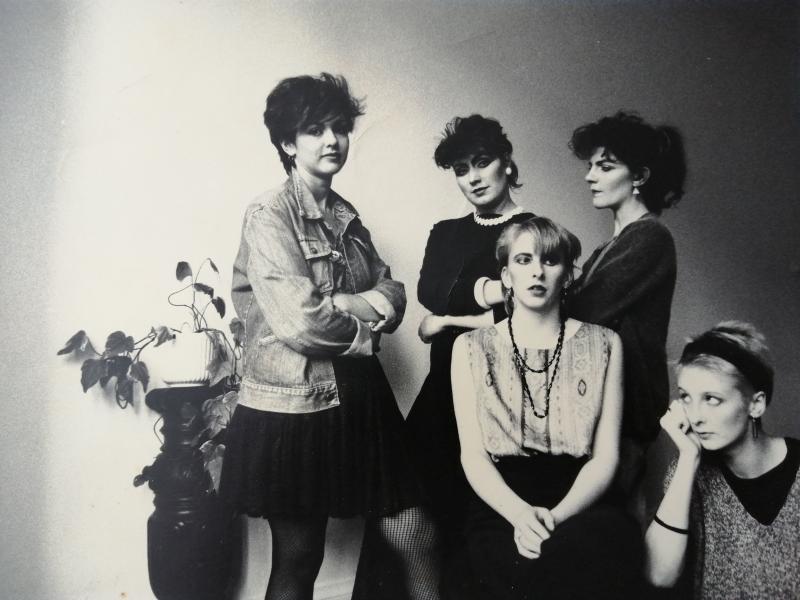Since Yesterday review - championing a neglected female music scene | reviews, news & interviews
Since Yesterday review - championing a neglected female music scene
Since Yesterday review - championing a neglected female music scene
A chronological journey through the unjustly underrated world of Scotland's women bands

Since Yesterday: The Untold Story of Scotland's Girl Bands is one of those films that, perhaps embarrassingly, feels very necessary. An examination of the history of solely all female bands in Scotland since the 1960s, it is a great demonstration of how little seems to have changed, particularly when it comes to the industry’s perceived "risk" when backing these groups.
The film is a chronological journey through genres in musical history, starting in 1964 with the McKinley sisters, who seemed on track for success but were passed over in favour of male pop groups. Their music is eminently catchy, to such an extent that I immediately downloaded their song "Sweet and Tender Romance". Like many acts in this film, however, we hear how it was impossible to progress with their sound. At one point, the one living McKinley sister describes how they were scrabbling for food and money for fuel in a London that seemed unwilling to pay for their talent.
This story is so familiar by the end of the film that it almost feels trite, a shaming state of affairs. Since Yesterday is narrated by Teen Canteen’s Carla Easton and uses a slightly naff trope of framing each band’s history with an often returned to scene of a preteen girl putting up their posters on her childhood bedroom wall. It’s notable that some of these bands were taken so little notice of at the time that there is no footage, and animations are also made use of to demonstrate moments in, say, The Ettes’ punk career. It’s pointed out that at the time, it was dangerous to even be a woman in a crowd at a punk gig.
Looking at the Glasgow and Edinburgh of the 1980s, a refreshing scene is described as emerging, one where women quite clearly played for themselves and for other women, disregarding the presence of men. Growing up in part around Glasgow’s Hellfire Club, bands like Sophisticated Boom Boom and Strawberry Switchblade appeared poised for success (the latter arguably were very successful for a time).
But both bands demonstrate how the reality of women’s life in music can be curtailed or circumscribed – Strawberry Switchblade split up under a cloud of unpleasant attention being paid to them in interviews and a reduction to their looks, and Sophisticated Boom Boom argued over their name when their lead singer left (or was pushed out) over her pregnancy. These themes come up again and again as the film moves into the next three decades, culminating in a focus on The Hedrons, who were told that they would be unlikely to sign with a major because all of those labels were too worried about one of them getting pregnant.
These themes are repeated so often that they can feel wearying, but however stale these are, they are notable for their sameness, in particular that of the same fate seeming to befall each act. We are so inured to the tales of the lack of equality in music, especially, that it is all too easy to ignore. But Since Yesterday doesn’t shy away from this, picking up from a slightly slow trek through the years to focus on the present day, proceeded by damning statistics about the lack of women and opportunities for them in music. We are shown groups, collectives, and individuals calling for a fairer scene, challenging rules and giving an alternative to the status quo, a wonderfully hopeful end to the film.
The future of Arts Journalism
You can stop theartsdesk.com closing!
We urgently need financing to survive. Our fundraising drive has thus far raised £49,000 but we need to reach £100,000 or we will be forced to close. Please contribute here: https://gofund.me/c3f6033d
And if you can forward this information to anyone who might assist, we’d be grateful.

Subscribe to theartsdesk.com
Thank you for continuing to read our work on theartsdesk.com. For unlimited access to every article in its entirety, including our archive of more than 15,000 pieces, we're asking for £5 per month or £40 per year. We feel it's a very good deal, and hope you do too.
To take a subscription now simply click here.
And if you're looking for that extra gift for a friend or family member, why not treat them to a theartsdesk.com gift subscription?

Add comment